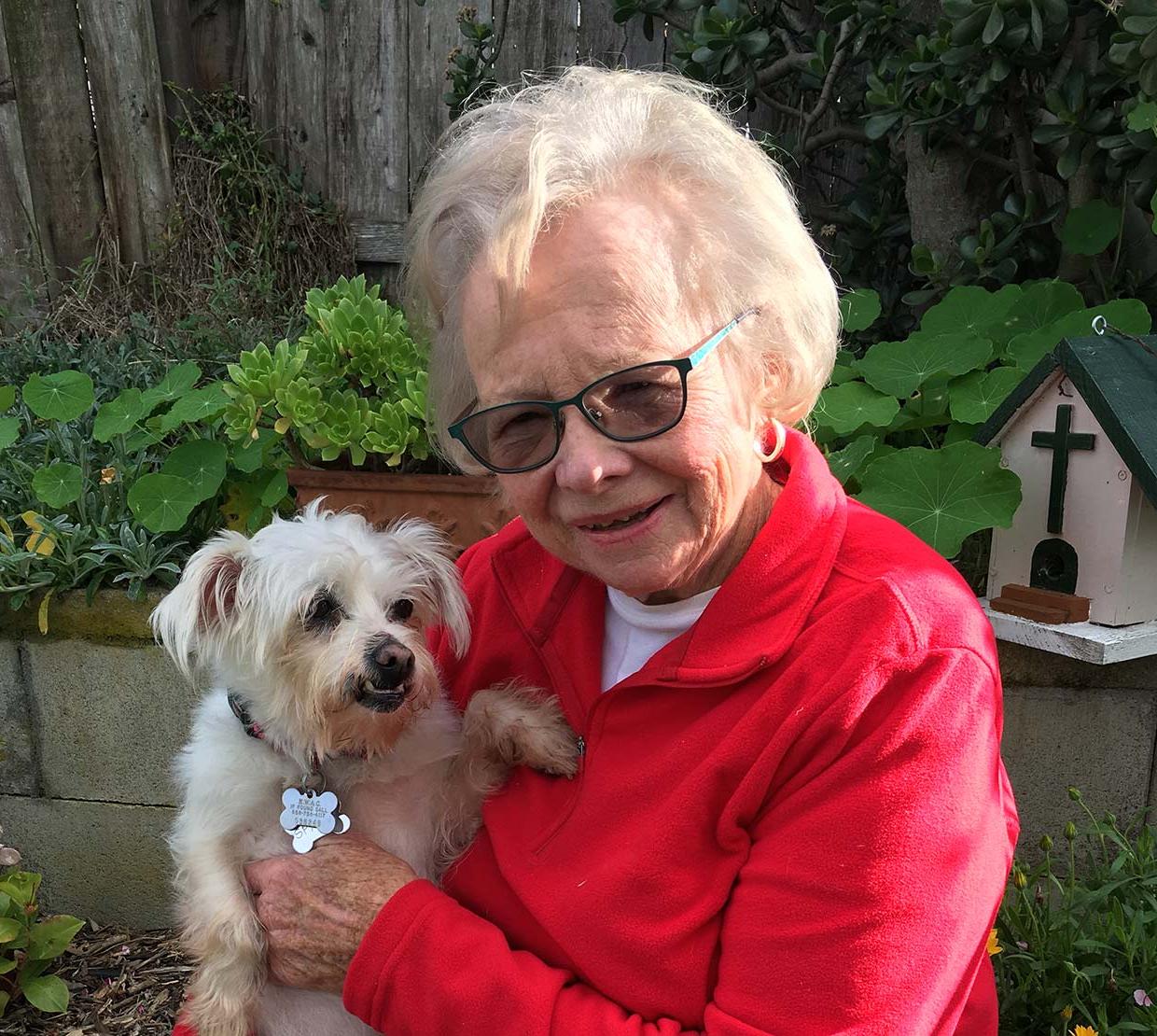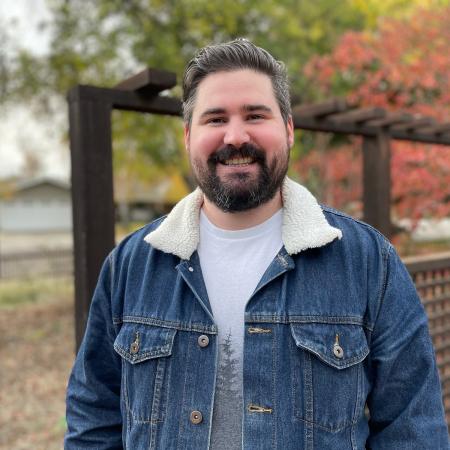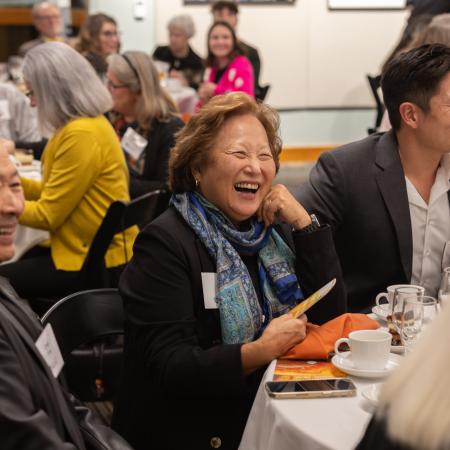When alumna Karen Nickel (Chemistry, ’61) returned to campus after a long and illustrious career in clinical chemistry, the trip “brought back lots of good memories of my years at Oregon State” and made her feel “young again” even as the undergraduates she met made her wonder, “But was I ever that young?”
One of Nickel’s first stops was to the Department of Biochemistry and Biophysics, where she was impressed by the department’s growth and head Andy Karplus’ vision of its future potential. Indeed, Nickel, who had previously made generous gifts to the College of Science, was so inspired that she created the Karen Nickel Scholarship for undergraduate students in the Department of Biochemistry and Biophysics.
Nickel would likely have been a biochemistry and biophysics major if it had existed at the time she attended (it wasn’t created until 1967). Her undergraduate research with Professor Tsoo King on heart enzymes sparked her lifelong interest in clinical endocrinology. After graduating from Oregon State, she went on to earn a Ph.D. in biochemistry and analytical chemistry with special emphasis on endocrinology from Kansas State University in 1968.
So naturally, Nickel was a guest of honor at the biochemistry and biophysics department’s 50th anniversary celebration in 2017. “I was maybe the only person there who graduated in chemistry before there was even a biochemistry major, and worked two years at the old Science Research Institute under Tsoo King and Vern Cheldelin,” reflects Nickel. (King and Cheldelin were members of the original 1960s OSU biochemistry team, a group with appointments in Chemistry or Agricultural Chemistry who formed a paper organization called the Science Research Institute, which was the seed organization for OSU’s eventual biochemistry and biophysics department.)
“I have been so blessed with career opportunities and that all started here.”
What was life like as one of only a few women in chemistry at Oregon State back in the late 50s and early 60s? “It was quite hard,” Nickel remembers, and not only because of her gender. “Without a scholarship I had to work throughout the school year and summers to pay my way. Courses were tough and I was competing `with the guys’ in my classes. It would have been a little easier without that added pressure!”
Nickel also recalls “lots of cold and rain and long lab classes in smelly labs” but “very pleasant and helpful professors” who encouraged her to persevere and to work hard. Both the challenges Nickel overcame and the support she received at OSU put her in good stead for a long and fruitful career: “I have been so blessed with career opportunities and that all started here.”
After earning her Ph.D., Nickel taught for four years at the university level in Southern California while her children, Mark and Jamie, were small. Then she pursued postdoctoral training in clinical chemistry to qualify for licensure in California as a clinical chemist, the beginning of a 42-year career with a surprise twist in the last chapter.
Early on, Nickel found herself “thrust into leadership positions,” a fact which she attributes simply to “being interested in people and seeing what needs to be done.” She held several positions as a clinical chemist in the newly emerging field of radioimmunoassays. From manager at a reference laboratory in Newbury Park, California, she was appointed laboratory director at the Endocrine Metabolic Center in Oakland and assumed several leadership positions at the American Association of Clinical Chemistry, culminating in being elected its president in 1991.
In 1993 Nickel was the first woman to become Chief of Laboratory Field Services for the California Department of Health Services, a position she held for 17 years. This program oversees 17,500 clinical laboratories in California and 27,000 licensed clinical laboratory personnel. Even more surprising than being the first woman, according to Nickel, was that she was hired as chief without coming up through the ranks – “A newcomer coming in as chief was hilarious!”
Under her tenure, the department assured that individual labs complied with state and federal laboratory laws. She led a team that prepared California for a Clinical Laboratory Improvement Amendment (CLIA) exemption (a CLIA exemption is granted when state regulations are shown to meet or exceed the federal standard) and established a better career path for laboratory personnel that recognized a broader range of licensing and examining standards for different levels of service. Nickel also fought hard to prevent laboratory fraud and to take enforcement action for quality assurance violations. She is most proud of how she was able to inspire the formerly disparate clinical laboratory professional community to come together and support quality testing in California.
What is Nickel’s advice for students today? “Get the best education you can, the more STEM the better! Then, work hard and don’t expect everything to be easy.” Any advice for women in STEM? “Women rule!” she cries. Nickel hopes that her scholarship will “encourage young women to major in biochemistry/biophysics and continue on to graduate work” in the field. She certainly blazes a remarkable path for them to follow.




